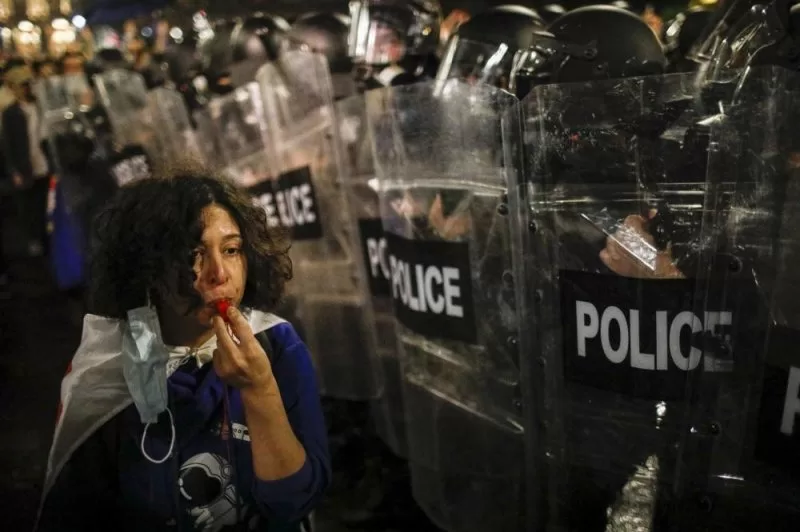Police in Georgia used tear gas and a water cannon to disperse protesters demonstrating against a so-called “foreign agent” law. Photo by David Mdzinarishvili/EPA-EFE
May 1 (UPI) — Georgian authorities used tear gas and water cannons to beat back pro-European Union protesters in the capital Tbilisi on Tuesday night who decried a proposed “foreign agent” law similar to one used in Russia, but many returned.
Demonstrators, some waving European Union flags, protested in front of the country’s Parliament building before riot police tried to drive them away. Police beat and pushed protesters away when the tear gas and cannon proved ineffective.
Protesters, though, returned on several occasions, leading to escalated fights and eventually arrests by police. The actions occurred despite Georgia’s President Salome Zourabichvili telling the interior minister for authorities to refrain from attacking peaceful protesters.
“It was evident that the demonstration proceeded peacefully, it posed no danger and there was no threat to public order,” Zourabichvili said, according to Politico. “It’s a shame to turn against your own youth.”
Zourabichvili had voiced her opposition to the bill. The legislation requires non-governmental organizations, media outlets, and others to register as “foreign agents” if they receive 20% or more of their funds from overseas.
Georgia’s Parliament backed the bill in an initial vote despite the European Union criticizing it. A second vote is expected on Wednesday. Georgia had been granted EU candidate status in December, something that has been overwhelmingly popular among residents.
The bill, though, is favored by Georgian Prime Minister Irakli Kobakhidze, who blamed NGOs for sparking potential revolutions in the country on two different occasions, along with attacking the Georgian Orthodox Church.
Russia’s foreign agent law, which was approved in 2012, has been employed to silence opponents of Russian President Vladimir Putin and the Kremlin, including the news media, political figures, and cultural leaders.
